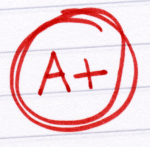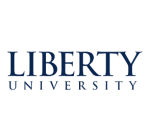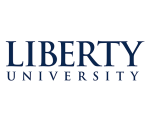PHIL 201 quiz 4 Liberty University complete solutions correct answers key
- From Philosophy, General Philosophy

- Ultrahydralisk
- Rating : 97
- Grade : A+
- Questions : 0
- Solutions : 382
- Blog : 0
- Earned : $48769.64

PHIL 201 quiz 4 Liberty University complete solutions correct answers key
4 different versions
Question 1 According to Dew and Foreman, faith is one of the sources of knowledge.
Question 2 According to Hume, why can we never arrive at certainty?
Question 3 Hume’s fork consisted of:
Question 4 Epicureans held to empiricism because:
Question 5 Knowledge arrived at immediately:
Question 6 An argument used by Descartes to prove Gods existence:
Question 7 Locke divided knowledge into matters of fact and relations of ideas.
Question 8 The elements of a proposition include:
Question 9 Scientific antirealism is the view that science does not claim objects like electrons actually exist. They are just a fictional construct to explain how things work. This view fits best with which truth theory:
Question 10 Plato develops the traditional view of knowledge in one particular book of his. What is the title of that specific book by Plato? (Note: “Complete Works” is not the answer.)
Question 11 A sufficient condition is:
Question 12 In response to the Gettier Problem, Keith Lerher and Thomas Paxson revise JTB as:
Question 13 We should study epistemology so that we can find confidence on the biggest questions of life.
Question 14 Epistemology might is best described as “the study of Knowledge.”
Question 15 Gettier Problems show that:
Question 16 Which of the following is NOT a problem with Pragmatism:
Question 17 The correspondence theory of truth is thought by some philosophers to be a pretheoretic intuition that we philosophize with, not to.
Question 18 According to Dew and Foreman, if something exists, then something must be true of about the things that exists.
Question 19 Postmodern antirealism argues that our perception comes to us through the subjective filters of our minds.
Question 20 Tests for truth are meant to define the nature of truth itself.
Question 1 Which of the following can be classified as a priori knowledge?
Question 2 Which of the following is NOT one of the five sources of knowledge listed in Dew & Foreman:
Question 3 The Aristotelian approach that Bacon critiqued was deduction.
Question 4 According to Dew and Foreman, faith is one of the sources of knowledge.
Question 5 According to Plato, how do we gain genuine knowledge?
Question 6 In the end Kant concluded
Question 7 The philosopher who believed we are born with innate “categories of understanding” was:
Question 8 By “noumena” Kant is referring to
Question 9 According to Plato, the process by which we know things in the world is called:
Question 10 Plato develops the traditional view of knowledge in one particular book of his. What is the title of that specific book by Plato? (Note: “Complete Works” is not the answer.)
Question 11 Gettier examples are aimed at showing that JTB is not a necessary condition of truth.
Question 12 A sufficient condition is:
Question 13 As long as justification is present, one can be assured that he/she has real knowledge.
Question 14 The study of epistemology has had positive impact of which of the following?
Question 15 Even after the Gettier problem, Dew and Foreman think that JTB is still at least a necessary condition for knowledge.
Question 16 Pragmatism is epistemologically valuable for us since it helps us test truth claims.
Question 17 Tests for truth are meant to define the nature of truth itself.
Question 18 Which of the following is not one of the reasons Dew and Foreman give to show that truth really does exist.
Question 19 The correspondence theory of truth is thought by some philosophers to be a pretheoretic intuition that we philosophize with, not to.
Question 20 Antirealist Postmodern thinkers say that reality does not exist.
Question 1 By “Form” Plato is referring to the particular shape of an object of experience.
Question 2 Plato was hesitant to build a theory of knowledge on the physical world because
Question 3 Descartes believed that all men were born a tabula rasa.
Question 4 Knowledge arrived at immediately:
Question 5 For Locke, which of the ideas below would be a complex idea:
Question 6 The type of knowledge epistemology is primarily concerned with:
Question 7 The philosopher who believed we are born with innate “categories of understanding” was:
Question 8 The basis for Descartes knowledge of the material world was:
Question 9 In the end Kant concluded
Question 10 Plato develops the traditional view of knowledge in one particular book of his. What is the title of that specific book by Plato? (Note: “Complete Works” is not the answer.)
Question 11 The primary problem with Thales’ view of the earth is that he lacked justification for his belief.
Question 12 Gettier examples are aimed at showing that JTB is not a necessary condition of truth.
Question 13 Gettier Problems show that:
Question 14 As long as justification is present, one can be assured that he/she has real knowledge.
Question 15 Even after the Gettier problem, Dew and Foreman think that JTB is still at least a necessary condition for knowledge.
Question 16 Antirealist Postmodern thinkers say that reality does not exist.
Question 17 Which of the following has been the dominant theory of truth for most of history?
Question 18 The correspondence theory of truth holds that statements are true when they correspond to the real state of affairs in the world.
Question 19 Postmodern antirealism argues that our perception comes to us through the subjective filters of our minds.
Question 20 Pragmatism is epistemologically valuable for us since it helps us test truth claims.
Question 1 Plato’s forms exist apart from the physical objects that they represent in the world experienced by our senses.
Question 2 Which of the following represents the key difference in thought from Descartes to Bacon?
Question 3 For Hume, which of the following would be a matter of fact:
Question 4 For Plato, the realm where things are constantly in a flux and changing is:
Question 5 According to Hume, why can we never arrive at certainty?
Question 6 “To affirm that something as true in a propositional form” is the definition of
Question 7 The elements of a proposition include:
Question 8 The type of knowledge epistemology is primarily concerned with:
Question 9 Rationalism holds that all knowledge is arrived at through the reason and rejects any use of the senses at all.
Question 10 Plato develops the traditional view of knowledge in one particular book of his. What is the title of that specific book by Plato? (Note: “Complete Works” is not the answer.)
Question 11 Knowledge has traditionally been defined as Justified, true, opinion.
Question 12 Even after the Gettier problem, Dew and Foreman think that JTB is still at least a necessary condition for knowledge.
Question 13 The problem with “True Opinion” is that:
Question 14 In order to count as knowledge, there must be some form of justification for the claim.
Question 15 Dew and Foreman claim that one minor concern with JTB is that the line between justification and truth seems a bit vague.
Question 16 Pragmatist theories of truth focus mostly how well a set of belief “work” for a particular person.
Question 17 Which of the following has been the dominant theory of truth for most of history?
Question 18 Tests for truth are meant to define the nature of truth itself.
Question 19 Coherentism uses which metaphor to illustrate how our beliefs relate to each other?
Question 20 Definitions of truth tell us the best ways to identify truth.
[Solved] PHIL 201 quiz 4 Liberty University complete solutions correct answers key
- This Solution has been Purchased 29 time
- Submitted On 31 Aug, 2016 10:22:26

- Ultrahydralisk
- Rating : 97
- Grade : A+
- Questions : 0
- Solutions : 382
- Blog : 0
- Earned : $48769.64

Liberty University PHIL 201 quiz 4 complete solutions correct answers key 4 different versions Question 1 According to Dew and Foreman, faith is one of the sources of knowledge. Question 2 According to Hume, why can we never arrive at certainty? Question 3 Hume’s fork consisted of: Question 4 Epicureans held to empiricism because: Question 5 Knowledge arrived at immediately: Question 6 An argument used by Descartes to prove Gods existence: Question 7 Locke divided knowledge into matters of fact and relations of ideas. Question 8 The elements of a proposition include: Question 9 Scientific anti¬realism is the view that science does not claim objects like electrons actually exist. They are just a fictional construct to explain how things work. This view fits best with which truth theory: Question 10 Plato develops the traditional view of knowledge in one particular book of his. What is the title of that specific book by Plato? (Note: “Complete Works” is not the answer.) Question 11 A sufficient condition is: Question 12 In response to the Gettier Problem, Keith Lerher and Thomas Paxson revise JTB as: Question 13 We should study epistemology so that we can find confidence on the biggest questions of life. Question 14 Epistemology might is best described as “the study of Knowledge.” Question 15 Gettier Problems show that: Question 16 Which of the following is NOT a problem with Pragmatism: Question 17 The correspondence theory of truth is thought by some philosophers to be a pre-theoretic intuition that we philosophize with, not to. Question 18 According to Dew and Foreman, if something exists, then something must be true of about the things that exists. Question 19 Postmodern anti¬realism argues that our perception comes to us through the subjective filters of our minds. Question 20 Tests for truth are meant to define the nature of truth itself. Question...

PHIL 201 Quiz 8 Liberty University | Complete Solution

PHIL 201 Quiz 7 Liberty University | Complete Solution

Liberty University PHIL 201 Discussion Board Forum 2 thread paper writing solution

PHIL 201-D40 Liberty University

Liberty University PHIL 201 quiz 8 complete solutions correct answers A+ work
The benefits of buying study notes from CourseMerits

Assurance Of Timely Delivery
We value your patience, and to ensure you always receive your homework help within the promised time, our dedicated team of tutors begins their work as soon as the request arrives.
Best Price In The Market
All the services that are available on our page cost only a nominal amount of money. In fact, the prices are lower than the industry standards. You can always expect value for money from us.


